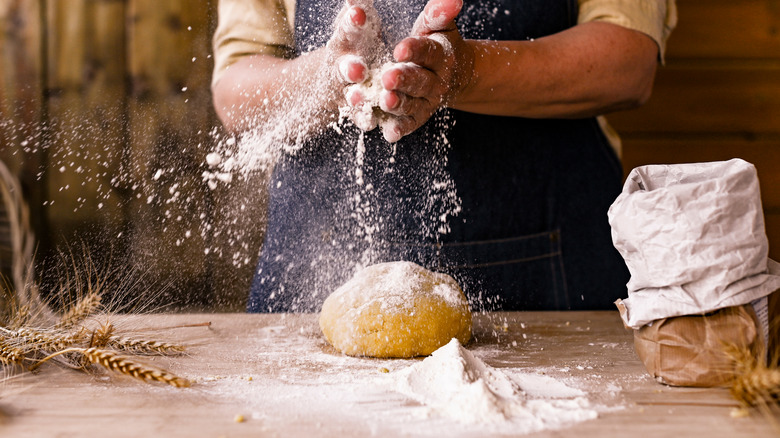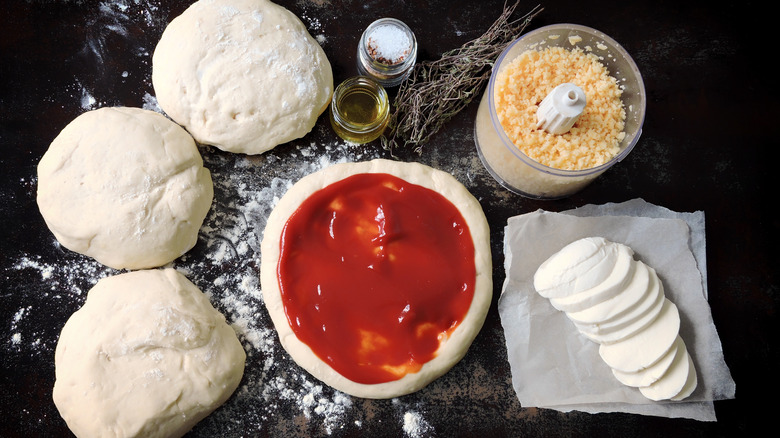Why You Should Never Add All The Water To Pizza Dough At Once
Making pizza isn't an exact science — but dough recipes come down to the numbers. While some doughs call for standard measurements in the form of cups, tablespoons, and teaspoons, many a traditional Italian recipe is simply a ratio.
A standard Neapolitan ratio, for example, calls for 100% flour, 60% water, 2% salt, and 1% yeast, per Serious Eats. While this ratio can translate to measuring cups, it makes for an easy understanding of where your ingredients stand in relation to one another.
Such knowledge of ingredient relativity is crucial for perfecting a pizza dough. While contingent on a nearly exact combination of flour, water, salt, and yeast, no two doughs are going to be exactly the same. As such, adding all the water to your mix at once can be binding, resulting in a dough that is over-hydrated and too sticky. Hydration is essential to any recipe and any ratio — making water the stealthy star ingredient in your next pizza experiment.
Too much or too little water can throw off hydration ratios
Budding pizzaiolos should slowly add water to pizza dough to allow the mixture to come together and prevent it from getting too wet, says Eat This, Not That. The website cites California chef Angelo Auriana as a proponent of this technique. According to Food & Wine, Auriana's recipe calls for, yet again, flour, salt, water, and yeast — standard ingredients.
Water is necessary for hydrating a dough, but hydration levels aren't one-size-fits-all across recipes. According to brick oven brand Ooni, lower hydrated doughs are easier to work with, but could yield dryer crusts. Meanwhile, more hydrated doughs can create airier, lighter crusts, but are sticker and more challenging to mold. Playing with hydration levels is therefore key, and gradually adding water allows you to experiment with various ratios and achieve your desired elasticity.
If making your own dough still intimidates you, opt for a frozen pizza or hop in your car to try the best slice in every state. Sampling the country's pizzas counts as research for the next time you try your hand at making your own pie.

